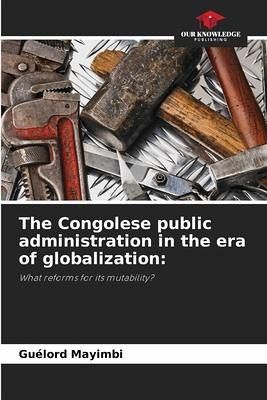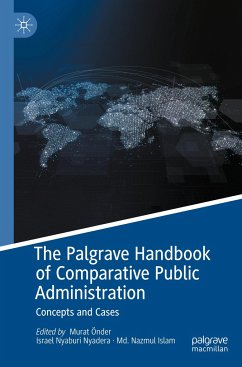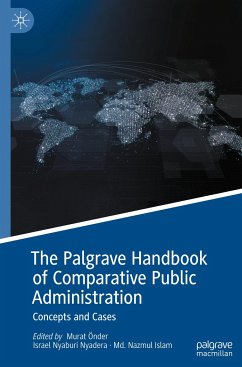
The Congolese public administration in the era of globalization:
What reforms for its mutability?
Versandkostenfrei!
Versandfertig in 6-10 Tagen
29,99 €
inkl. MwSt.

PAYBACK Punkte
15 °P sammeln!
The Congolese public administration comes from very far. It has known years of glory that have earned it a reputation but that could not continue after decolonization, following the occurrence of several factors and the habituation and normalization of anti-values that have not been slow to precipitate in the paralysis to the point of reducing it to nothing, which has negatively impacted on its performance. Several efforts have been made to improve it through reforms that were initiated from 1959 to 2003, which did not produce the expected results. As a result, the central government resumed, ...
The Congolese public administration comes from very far. It has known years of glory that have earned it a reputation but that could not continue after decolonization, following the occurrence of several factors and the habituation and normalization of anti-values that have not been slow to precipitate in the paralysis to the point of reducing it to nothing, which has negatively impacted on its performance. Several efforts have been made to improve it through reforms that were initiated from 1959 to 2003, which did not produce the expected results. As a result, the central government resumed, in 2012, with the impetus of reforms to modernize the public administration so that it can ensure the satisfaction of the needs of general interest. To this end, some reforms have been carried out and their results are still palpable today. We believe in its recovery and its mutability with the continuation and modification of the current reforms; but also, by integrating other reforms inspired by the experiences of some countries, which we have formulated as proposals in this article.












